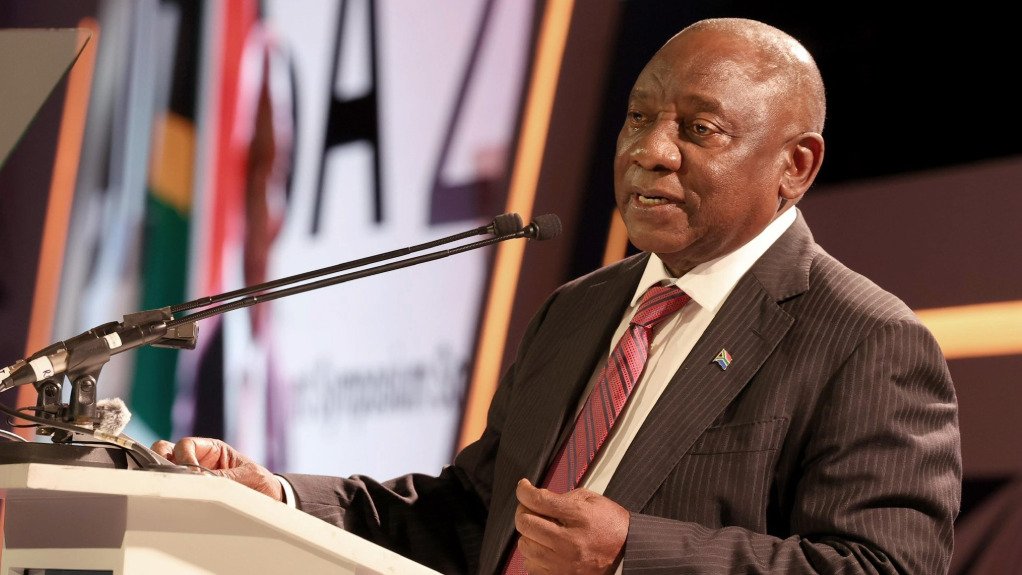President Cyril Ramaphosa has reaffirmed the South African government’s plan to invest more than R1 trillion in infrastructure over the next three years to improve the nation’s roads, ports, rail lines, energy supply, and water systems. He made this announcement while presenting The Presidency Budget Vote for the 2025/2026 financial year before Parliament in Cape Town on Wednesday.
President Ramaphosa told lawmakers that this massive infrastructure investment is part of the 7th administration’s plan to tackle poverty, unemployment, and rising costs of living, while also building a strong and ethical state. He said the plan is also designed to create jobs, drive inclusive growth, and lay the foundation for long-term development.
“South Africans benefit when the economy grows, when jobs are created, when established industries expand and new industries emerge,” he said.
The president noted that infrastructure investment will serve as a powerful engine of growth, or what he described as the “flywheel of economic growth.” Through the Infrastructure Fund, the government is already funding key roads and water projects that connect communities to economic centres and support growing towns.
Ramaphosa added that regulatory changes have been made to encourage public-private partnerships. These reforms make it easier for private investors to put money into areas like renewable energy and housing, which will in turn improve services for ordinary people and help businesses thrive.
He also admitted that challenges remain. High unemployment, slow economic growth, corruption, and crime continue to affect the country. These problems, he said, hit the poorest the hardest. In response, the Government of National Unity (GNU) was formed after the 2024 general elections to bring together political parties for the sake of national development and peace.
The president explained that the GNU has already adopted a Medium-Term Development Plan (MTDP), which sets out clear steps to be taken over the next five years. The plan is based on three strategic priorities: growing the economy and creating jobs; reducing poverty and the high cost of living; and building a capable and ethical state.
“All ministries, departments, and national entities are working towards these goals,” he said. “Most importantly, there is a shared understanding that we need to rise above our differences and work together to solve the country’s biggest problems.”
As part of that unity, President Ramaphosa announced a National Dialogue initiative, which he described as a platform for building consensus across society. The dialogue is supported by individuals, civic groups, and political formations from all walks of life. Its purpose is to craft a new social compact that can move the country forward.
“This dialogue does not replace the country’s democratic processes,” he said. “Rather, it complements them by allowing all South Africans to help shape the nation’s future.”
He promised that while the national dialogue continues, the government will continue to focus on urgent issues. These include creating jobs, growing the economy, tackling corruption and crime, and fixing local government problems.
President Ramaphosa highlighted the role of the Presidency in making sure these plans are properly implemented. He said all government actions—from trade talks to digital payment reforms, from supporting small businesses to improving visa systems—are geared toward helping South Africans live better and more secure lives.
He also spoke about the country’s Critical Minerals and Metals Strategy, which was recently approved by the Cabinet. According to him, this strategy will ensure that South Africa benefits from its mineral wealth by creating local jobs and building industries around key resources.
The president further said that new sectors are being developed to support rural livelihoods. One of them is the commercial hemp and cannabis industry, which is expected to grow by 10% each year under a new national policy.
Ramaphosa closed his address by emphasizing the urgency of government action. He said citizens are expecting results and that the Presidency will ensure every commitment becomes reality.
